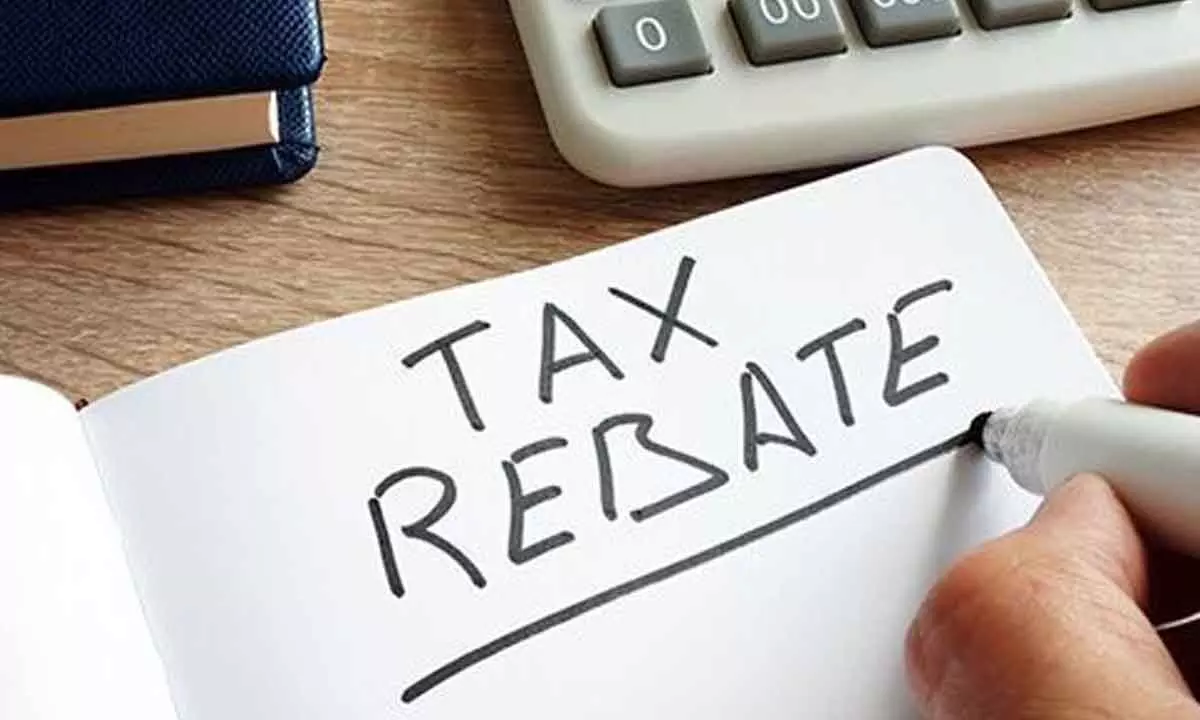I-T rebate structure under the new direct tax regime
Centre increased the income tax rebate under the new regime to Rs 7 lakh from Rs 5 lakh in 2023 Budget
image for illustrative purpose

Mumbai: As the nation anticipates the Union Budget 2024, one of the key focal points is the income tax rebate structure under the new direct tax regime. It is special as it falls just before the General Elections, making it an interim budget.
The Union Budget is a comprehensive financial statement that outlines the government's projected receivables and payables for a fiscal year. It aims to foster rapid and balanced economic growth while ensuring social justice and equality. The budget has a far-reaching impact, influencing resource allocation, unemployment levels, poverty reduction, wealth and income disparities, price control, and tax structures. For individuals, the announcements related to income tax, especially rebates, are closely monitored.
In Budget 2023, the Centre increased the income tax rebate under the new regime to Rs 7 lakh from Rs 5 lakh, with the basic exemption limit raised to Rs 3 lakh. In addition, a deduction of Rs 15,000 for a family pension was introduced, and the income tax slabs were simplified to six from seven. The changes aimed to streamline personal income tax rules and make them more accessible. Speculations were rife about a further increase in the income tax rebate to Rs 7.5 lakh in the upcoming interim Union Budget. However, a senior finance ministry official dismissed these speculations, stating that no such proposal exists. Nevertheless, reports suggest that the Centre may consider raising the tax rebate to Rs 7.5 lakh, allowing individuals with an income of Rs 7.5 lakh, after deductions, to be exempt from income tax starting from the fiscal year 2024-25.
If the tax rebate is increased to Rs 7.5 lakh, it would provide relief to taxpayers, especially in the middle-income bracket. Individuals with incomes up to this threshold, after standard deductions, would be exempt from income tax. This could potentially stimulate spending and investment, contributing to economic growth. However, skeptics argue that the government should also focus on broader economic policies to ensure sustainable growth, he said.
Talking to Bizz Buzz, Prateek Bansal, Partner (Taxation), White & Brief, Advocates & Solicitors says”A an increase in the income tax rebate to Rs 7.5 lakh would be a welcome move for taxpayers, offering relief amid economic uncertainties. However, the government must balance this with comprehensive economic policies to foster long-term growth. Additionally, a higher tax rebate benefits individuals and is essential for the government to consider the overall economic landscape. Also, sustainable growth requires a holistic approach, including structural reforms and sector-specific policies.”
Union Finance Minister Nirmala Sitharaman is set to present the Union Budget 2024-25 as an interim budget, with general elections scheduled for April-May 2024. Interim budgets traditionally focus on securing funds for the first three months of the next financial year until a full budget is passed by the new government post-election, he said.
Abhishek Aneja, a chartered accountant, says, “The interim budget serves as a temporary arrangement, with the full budget presented after the new government is formed. Currently, a benefit of 7 lakhs is applicable solely under section 87A for taxpayers earning between 3 and 7 lakhs. If income surpasses this threshold, taxes must be paid based on the applicable slab rates.”
Despite high expectations during election years, no major benefits were granted in the last interim budget.

